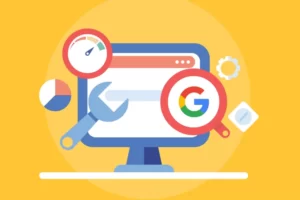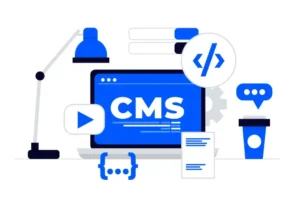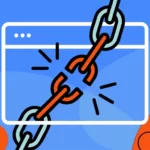Introduction
SEO (Search Engine Optimization) is a vital aspect of modern digital marketing. It helps businesses and websites reach their target audience by improving their online visibility and search engine rankings. However, with the evolving landscape of SEO, it’s crucial to stay updated on the latest policies and guidelines set by search engines like Google. This article focuses on Google Spam Policy 2023 and offers actionable insights on how to practice safe SEO to achieve better rankings while maintaining integrity and trustworthiness.
Understanding Google Spam Policy 2023
Google, being the most widely used search engine, constantly updates its algorithms and policies to ensure the delivery of relevant and high-quality search results to users. The Google Spam Policy 2023 aims to combat spammy SEO practices and unethical strategies used to manipulate search rankings. Violating these policies can lead to severe penalties, including ranking demotions and even removal from the search index.
Why Complying with Google Spam Policy is Vital for SEO Success
Aligning your SEO efforts with Google’s standards is critical for long-term success and sustained growth. It not only helps you avoid penalties, but it also lays a solid foundation for your internet presence. Following Google’s standards guarantees that your website gets authority and credibility in the eyes of both users and search engines.
Understanding LSI Keywords and Their Importance
LSI (Latent Semantic Indexing) keywords play a significant role in modern SEO. These are contextually related terms that are semantically linked to the main keyword. Integrating LSI keywords into your content helps search engines understand the context and relevance of your pages better. This leads to improved rankings and enhanced visibility.
Creating High-Quality and Engaging Content
The cornerstone of safe SEO lies in crafting high-quality and engaging content. Content that offers value to users is more likely to be shared, linked to, and cited, which all contribute positively to your website’s SEO efforts. It’s essential to identify your target audience and tailor your content to meet their needs and interests.
Optimizing On-Page Elements for SEO
On-page SEO elements are crucial for signaling the relevance and structure of your content to search engines. These elements include title tags, meta descriptions, header tags, URL structures, and keyword optimization. By ensuring proper on-page optimization, you improve your chances of ranking higher in search results.
Understanding Off-Page SEO and Link Building
Off-page SEO focuses on building your website’s authority and reputation through external signals, primarily backlinks. Acquiring high-quality and relevant backlinks from authoritative websites can significantly impact your rankings. However, it’s essential to practice ethical link-building techniques and avoid spammy practices.
Utilizing Social Media for SEO Success
Social media plays a crucial role in today’s SEO landscape. Social signals can indirectly impact your search engine rankings. Engaging content on social media platforms can lead to increased shares and interactions, indirectly influencing your website’s credibility and visibility.
The Importance of Mobile-Friendly Websites
In the mobile-first era, having a mobile-friendly website is not just an option; it’s a necessity. With a substantial portion of internet users accessing websites through mobile devices, Google prioritizes mobile-friendly sites in its search results. Optimizing for mobile ensures a better user experience and can positively impact your SEO efforts.
Best Practices for Technical SEO
Technical SEO focuses on optimizing your website’s technical aspects to enhance its crawlability and indexability by search engines. It involves tasks like XML sitemap creation, robots.txt configuration, site speed optimization, and SSL implementation. Prioritizing technical SEO improves your website’s overall performance in search results.
Avoiding Black Hat SEO Techniques
Black Hat SEO refers to unethical practices that aim to manipulate search engine rankings. These techniques violate Google’s guidelines and can lead to severe penalties. Avoiding Black Hat SEO is crucial for maintaining the integrity of your website and ensuring long-term success.
The Role of User Experience in SEO
User experience (UX) is becoming an increasingly important factor in SEO. Google considers metrics like bounce rate, time on page, and click-through rate as signals of user satisfaction. Providing an excellent user experience through intuitive navigation, fast loading times, and valuable content can positively impact your rankings.
Using Google Analytics and Search Console for SEO Insights
Google Analytics and Google Search Console are invaluable tools for monitoring and analyzing your website’s performance. They provide essential insights into user behavior, site traffic, keyword rankings, and more. Utilizing these tools helps you make data-driven decisions and optimize your SEO strategies effectively.
Navigating Google Penalties and Recovery
Despite your best efforts, there is still a chance of accidentally violating Google’s guidelines and incurring penalties. Understanding the types of penalties and knowing how to recover from them is essential. Promptly addressing the issues and submitting reconsideration requests can help you regain lost rankings.
The Future of SEO: Voice Search and AI
With the rise of voice search and AI-driven technologies, the future of SEO is ever-evolving. Optimizing your content for voice search queries and leveraging AI tools to gain insights can give you a competitive edge. Staying ahead of these technological advancements ensures your website’s continued success in search rankings.
Local SEO and Its Impact on Businesses
Local SEO is crucial for businesses targeting specific geographical locations. Optimizing your website for local search helps attract relevant local customers and can significantly impact foot traffic to physical stores. Utilizing Google My Business and local citations are essential strategies for effective local SEO.
Measuring SEO Success and ROI
Measuring the success of your SEO efforts is vital to understanding the return on investment (ROI). Tracking key performance indicators (KPIs) such as organic traffic, conversion rates, and keyword rankings can help gauge the effectiveness of your strategies.
(FAQs)
Q: What is the most critical aspect of safe SEO?
A: The most critical aspect of safe SEO is adhering to Google’s Spam Policy 2023 and avoiding unethical practices.
Q: How can I recover from a Google penalty?
A: To recover from a Google penalty, identify and rectify the issues, and then submit a reconsideration request through Google Search Console.
Q: Are backlinks essential for SEO success?
A: Yes, high-quality and relevant backlinks from authoritative websites are essential for SEO success.
Q: How can I optimize my website for mobile devices?
A: To optimize your website for mobile devices, use a responsive design, compress images, and prioritize fast loading times.
Q: What are LSI keywords, and how do they impact SEO?
A: LSI keywords are contextually related terms that improve SEO by providing search engines with a better understanding of your content’s relevance.
Conclusion
Practicing safe SEO is not only about gaining better rankings; it’s about building a reputable online presence. By aligning your strategies with Google’s Spam Policy 2023, integrating LSI keywords, creating high-quality content, and following ethical practices, you can boost your website’s visibility and credibility. Remember, SEO is a continuous journey of learning and adaptation, and staying updated on the latest trends and guidelines is essential for long-term success.








